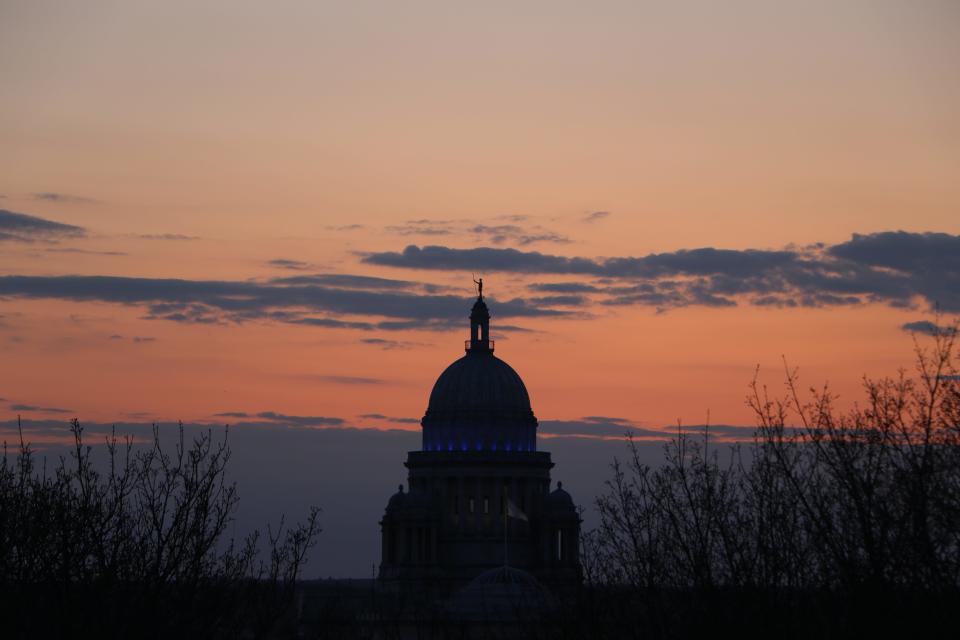Daylight Saving Time is coming in March. What would it mean for RI if it became permanent?
- Oops!Something went wrong.Please try again later.
- Oops!Something went wrong.Please try again later.
The annual tradition is this weekend: Daylight Saving Time will start on Sunday, March 12, at 2 a.m., at which point we will all spring ahead and lose one hour of sleep.
While the semi-annual chore of changing the clocks on your non-smart appliances has seemed inevitable as the seasons themselves, there’s a growing movement to make Daylight Saving Time permanent and end all the fiddling with clocks.
The Sunshine Protection Act, sponsored by Sen. Sheldon Whitehouse, would make Daylight Saving Time permanent, ending the falling back and springing forward. The legislation, co-sponsored by Florida Sen. Marco Rubio, passed the Senate in 2022, but hasn’t advanced in the House of Representatives, a key stop before it can make it to the president’s desk.

When is Daylight Saving Time 2023?
It will start Sunday, March 12, 2023 at 2 a.m.
Daylight Saving Time is controlled by the federal government, specifically the Department of Transportation. In 1966, the U.S. passed the Uniform Time Act, which made DST the national standard from mid-spring through mid-fall. It had been in effect during World War I, but ended after the war.
In 2007, the federal government increased the period we spend in Daylight Saving Time to reduce energy consumption.
Outside in RI:DEM will be doing more prescribed burns in these four areas this spring
Now, Daylight Saving Time starts at 2 a.m. on the second Sunday of March and ends on 2 a.m. on the first Sunday of November. It accounts for about 65% of the year.
Will Rhode Island make Daylight Saving Time permanent?
While a Rhode Island senator is a leader in the federal push to end the seasonal transitions to and from Daylight Saving Time by making it permanent, Rhode Island hasn’t passed a bill to do that at the state level.
Nineteen other states have passed state-level measures to make Daylight Saving Time permanent, but to put it into action they need federal approval. Advocates have said that maintaining a consistent time throughout the year has health benefits, reduces traffic accidents and would lead to energy savings.
Arizona and Hawaii observe standard time year-round, as do many U.S. territories including Puerto Rico.
What’s the status of the Daylight Saving Time bill the Sunshine Protection Act?
While progress of the Sunshine Protection Act has slowed, the bill isn’t dead. Rubio reintroduced the bill to Congress earlier this month.
“This ritual of changing time twice a year is stupid. Locking the clock has overwhelming bipartisan and popular support," Rubio said last week after the bill was reintroduced for the new congressional session.
Whitehouse has co-sponsored the bill every Congress since 2019.
“It’s time for Congress to find consensus and free Rhode Islanders from the unnecessary practice of changing our clocks twice a year," Whitehouse said in a statement. "If we pass my Sunshine Protection Act and make Daylight Saving Time permanent, we’d gain an hour of afternoon sunlight in the winter months for families to soak up after work and school. That’s a commonsense change that I hope all we can all get behind."
From Washington, D.C.:Will daylight saving time be permanent? Senate passes bill sponsored by Whitehouse
The bill is currently held at the desk of the House of Representatives, but Whitehouse remains hopeful it will make it to the president’s desk.
What would permanent Daylight Saving Time mean for Rhode Island?
If the bill went into effect, it would mean Rhode Island in the winter would experience more sunlight in the evenings and less in the morning.
More concretely, this would mean that the sun would never set earlier than 5:14 p.m. at any point in the year, compared to the 4:14 p.m. sunset that Rhode Islanders currently experience on the darkest day in December.
However, it also would mean sunrise would be later, including a stretch of time in December and January when it would occur after 8 a.m.
This article originally appeared on The Providence Journal: Will U.S. end daylight saving time? Get ready for 1 less hour of sleep

